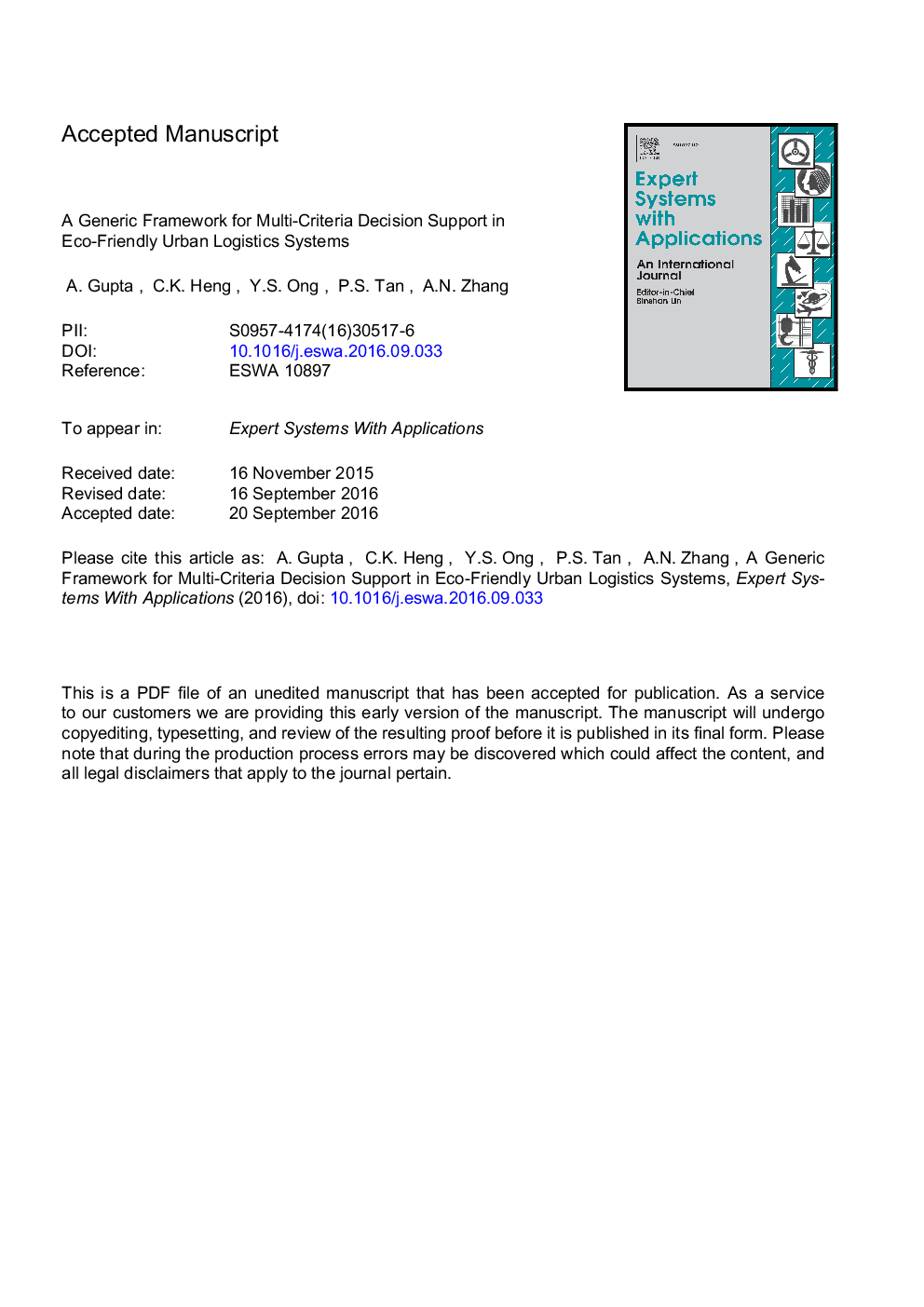| Article ID | Journal | Published Year | Pages | File Type |
|---|---|---|---|---|
| 4943542 | Expert Systems with Applications | 2017 | 30 Pages |
Abstract
In this paper, we present a multi-objective shortest path evolutionary algorithm for comprehensive solutions to real-world manifestations of the classical vehicle routing problem. The shift from being a purely academic pursuit is highlighted by the introduction of a generic optimization framework which accommodates a variety of attributes that commonly occur in industrial applications. Specifically, the paper's main contribution are as follows: (1) consideration for the following real-world constraints: (a) time windows at customer locations, (b) simultaneous pickup and delivery demands, (c) a heterogeneous fleet of vehicles, and (d) the heterogeneity of traffic congestion levels in urban transportation networks; (2) assimilation of all the above attributes into a multi-objective program which aims to minimize environmental impact, while simultaneously addressing the overall operational costs of the routing solution and service quality concerns; a feat that has not been fully realized by known intelligent systems according to the authors' best knowledge. In order to showcase the efficacy of the proposed algorithm, it is first tested on existing benchmark instances and then applied on a pair of real-world industrial examples from Singapore. These industrial examples serve as a source of new benchmarks which facilitate the study of different routing constraints and their effects on the economic and environmental viability of urban logistics systems.
Related Topics
Physical Sciences and Engineering
Computer Science
Artificial Intelligence
Authors
A. Gupta, C.K. Heng, Y.S. Ong, P.S. Tan, Zhang A.N.,
